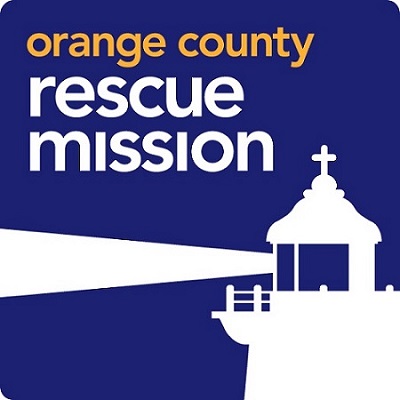Tag: financial education

As the owner of one of those increasingly popular voice-controlled assistants, I get a weekly email from the supplier suggesting new things to ask it to do or help with. Rather conveniently, this week’s update arrived this morning and includes the suggestion: “[Hello], can you do maths?” I use the word ‘conveniently’ because among the various tasks on my to-do list today is ‘write a short blog about numeracy’. So now I have an introduction. Like literacy, numeracy – understanding and being able to apply numbers – is a vital life skill. They are both key foundations of our education from the earliest of ages and go on to support opportunity and achievement throughout our schooling, into the world of work and beyond. Low levels of numeracy in adult life can be a major obstacle to success. Most employers require at least basic maths skills. And if you struggle with numbers, making successful financial decisions about the money that going to work generates will be very challenging. But this is the reality for many adults today. In the UK, almost half of us possess the maths skills expected of an 11 year old. This is according to National Numeracy, a charity that champions the importance of good numeracy and provides tools to help people improve. So when National Numeracy asked Experian to support the UK’s first National Numeracy Day on 16 May we were delighted to say yes. I’m certainly looking forward to working alongside a number of other big brands as well as numeracy ambassadors Rachel Riley and Martin Lewis. It’s a great fit for Experian, a company with a long track record of supporting initiatives designed to help people make successful decisions, particularly around personal finances. Our learning resource Values, Money & Me is already used in primary-school classrooms around the country to help cement good financial habits from an early age. Similarly, millions of adults track the health of their credit with the help of a free Experian account, and use the built-in eligibility features to secure better deals on financial products. Like others, we firmly believe that maths skills and financial success are closely linked, so we’re delighted to be helping support and promote National Numeracy Day. We’ll be encouraging as many people as possible to tackle the National Numeracy challenge and, where necessary, to take follow-up steps to brush up on their maths skills and, as a result we hope, improve their financial futures. Written by: James Jones, Head of Consumer Affairs, UK&I

Identity fraud is at an all-time high, and it can have devastating consequences on a person’s life. Victims of identity fraud may have to file for bankruptcy or deal with debt, which can sometimes cause personal relationships to suffer. Elderly people in particular are at the greatest risk of fraud out of any age group, as they tend to more trusting of phone calls, house calls and email scams. It’s my job at Experian to arm them with the tools they need to prevent identity fraud. The number one challenge in helping prevent identity fraud is lack of awareness. People simply don’t know all the risks, so education is a paramount priority. At Experian, we conducted research on the best way to educate different age groups, and found that it varied widely. While younger people are best reached online, older people are more responsive to face-to-face activities, which is part of the reason they are more susceptible to doorstep scams. To help educate elderly people, we found we needed to go out into the community and literally put useful information into people’s hands. As part of these efforts, my team at Experian first worked with the Outreach Solutions organization to help older people in Nottinghamshire, England, understand the dangers of fraud. The pilot campaign, “Tackling Fraud,” reached 15,000 U.K. residents over age 55, teaching them how to tackle the threat of fraud. We armed these individuals with expert advice on how to spot suspicious activity and stop it from happening to them or the people they care about. Given the success and great reception we had in Nottinghamshire, it was clear that this movement could continue growing. According to Experian research, Glasgow is one of the areas with the highest number of identity fraud cases in Scotland. We’d been testing a new television advertisement in Glasgow – marking the first time that identity fraud has ever been advertised on TV in the U.K. – so I made the case to run the next iteration of our Tackling Fraud campaign there, too. In partnership with the Glasgow Council for the Voluntary Sector, we worked with a range of individuals and community groups to provide fraud prevention training to more than 30,000 elderly people in the city.\ We’re dedicated to helping the elderly with our Tackling Fraud campaign, putting people in control of their lives by giving them the information they need to help them protect themselves. I hope that one day we can take this project throughout the U.K. Written by: Phil Rance, Director of Product Identity, Experian Consumer Services

Experian donates Intelliview data to InCharge Debt Solutions to help consumers repay debt and increase their financial literacy to achieve greater success.

 With the objective of supporting the local community and helping Orange County residents overcome financial issues, we have partnered with the Orange County Rescue Mission (OCRM) to spread financial literacy by providing residents with the insight and resources to guide them on a journey to independence.
With the objective of supporting the local community and helping Orange County residents overcome financial issues, we have partnered with the Orange County Rescue Mission (OCRM) to spread financial literacy by providing residents with the insight and resources to guide them on a journey to independence.

 Are you in the dark with your finances? Take control this April during Financial Literacy Month and join Experian as we provide education and resources to help light the way to financial literacy.
Experian is a long-time advocate for financial education and empowerment for consumers. As a result, we are teaming with the Jump$tart Coalition® this month to encourage people to take time to think and talk about their own money matters. We want to encourage people to take full advantage of all of the available resources designed to improve their financial literacy and well-being.
Are you in the dark with your finances? Take control this April during Financial Literacy Month and join Experian as we provide education and resources to help light the way to financial literacy.
Experian is a long-time advocate for financial education and empowerment for consumers. As a result, we are teaming with the Jump$tart Coalition® this month to encourage people to take time to think and talk about their own money matters. We want to encourage people to take full advantage of all of the available resources designed to improve their financial literacy and well-being.